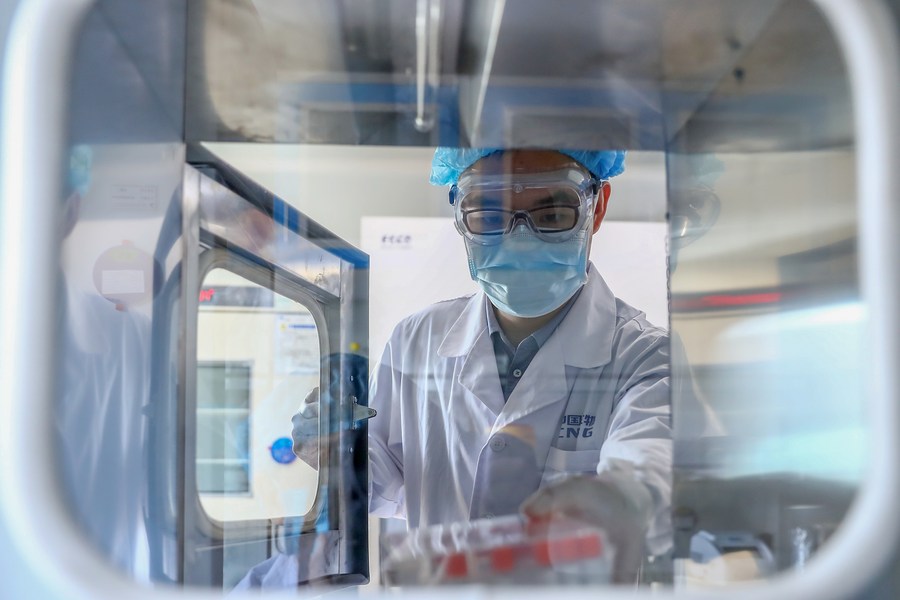Xi: Nation to be more open to scientific cooperation


China will advance an international science and technology cooperation strategy that is more open, inclusive and mutually beneficial, President Xi Jinping said in a keynote speech via video at the opening ceremony of the third World Laureates Forum on Friday.
Xi, also general secretary of the CPC Central Committee, said since the outbreak of the COVID-19 pandemic, scientists across the world have worked together to find ways to fight it. They have carried out scientific research and transnational cooperation in many important areas such as disease treatment, prevention and control and vaccine development and made significant contributions to the global fight.
In the current situation, it is necessary to carry out research cooperation in developing drugs, vaccines and testing methods for COVID-19, as well as focusing on common issues such as climate change and human health, so that technological innovation will better benefit humanity, he said.
Xi also emphasized that China considers scientific and technological innovation to be of great importance and insists on making innovation the primary driving force for development.
He expressed hope that all scientists will exchange ideas and jointly advance the cause of world science. Xi said China will implement a more open, inclusive and mutually beneficial international cooperation strategy in science and technology. He also said the country is willing to work with the world's top scientists and international organizations to strengthen research on major scientific issues, make breakthroughs in common science and technological problems and deepen cooperation and coordination in key strategic scientific projects.
The forum, sponsored by the World Laureates Association and organized by the Shanghai municipal government, is a three-day event that began on Friday. This year, nearly 140 world-leading scientists, including 61 Nobel Prize laureates, will participate in the event either in person or via video-link due to the pandemic.
Subforums will feature a wide range of scientific topics, including quantum physics, nanomaterials, biomedicine and astronomy.
Given the event's theme-Science and Technology, for the Common Destiny of Mankind-many scientists have stressed the importance of closer interdisciplinary collaboration and how they will serve humankind.
"If we pursue multidisciplinary collaboration, generate a rich and diverse talent pool and create an innovation-friendly ecosystem, we can accelerate our collective journey to find and develop more effective treatments to meet the needs of patients and societies," said Vasant Narasimhan, a member of the National Academy of Medicine in the United States and chief executive officer of Switzerland-based healthcare company Novartis.
"We have all done lots of research and made great contributions to minimizing the threat of the COVID-19 pandemic to human lives, and it's important for us to further join forces, either in early diagnostics or in the research and development of vaccines and treatment for the virus and other possible pandemics in the future," said Zhong Nanshan, China's leading respiratory disease expert and an academician of the Chinese Academy of Sciences.
- Beijing courts boost efforts to resolve livelihood-related cases
- Reminder tips from Weifang police spark buzz on Xiaohongshu
- Former head of national tobacco body stands trial on bribery charges
- China warns DPP's attempt to seek 'Taiwan independence' will be futile
- Consistent progress seen in environmental protection
- Former head of China's State Tobacco Monopoly stands trial for graft, abuse of power





































